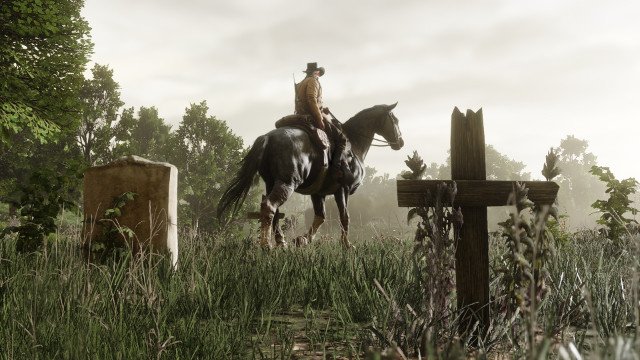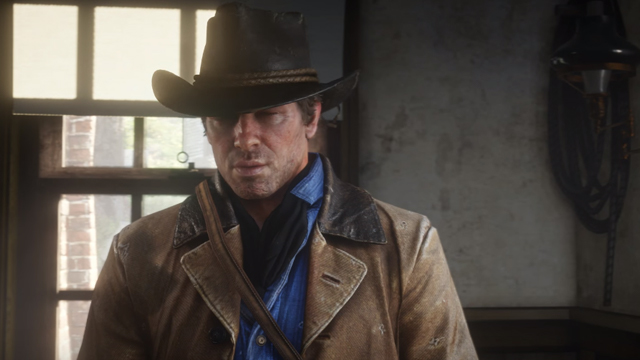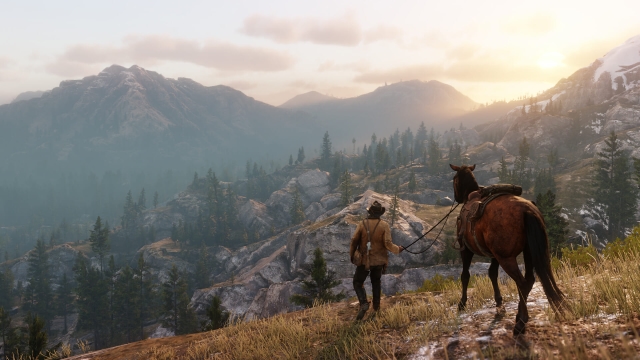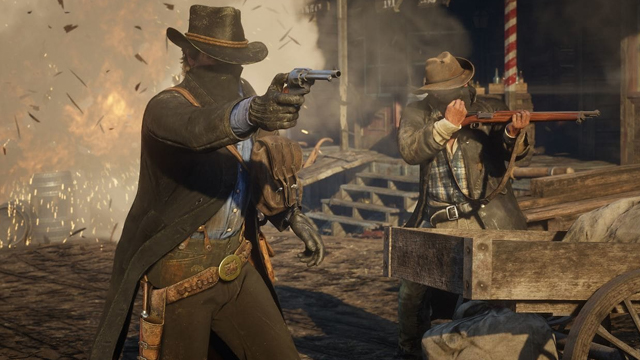Rockstar has come under fire for recent comments made by co-founder Dan Houser. Discussing the work put into the upcoming Red Dead Redemption 2, Houser expressed how the team had been working “100-hour weeks” in 2018 in order to get the game up to scratch. With developmental crunch being a controversial topic in the games industry, Houser’s comments were promptly criticized and Rockstar was condemned for taking exploitative measures in order to meet its targets for RDR2.
After Houser’s comment was roundly condemned online, he provided a statement to Polygon addressing the matter. “There seems to be some confusion arising from my interview with Harold Goldberg [in New York Magazine],” Houser said. “After working on the game for seven years, the senior writing team, which consists of four people, Mike Unsworth, Rupert Humphries, Lazlow and myself, had, as we always do, three weeks of intense work when we wrapped everything up. Three weeks, not years.”
The Vulture piece from Goldberg, in which Houser’s comment was made, doesn’t directly tackle the “100-hour weeks” comment. As such, Goldberg was also criticized for seemingly glossing over a troubling talking point and not holding Houser accountable. However, while Twitter is a place for kneejerk reactions by design, the slew of assumptions made about Rockstar’s practices highlights how the social platform eradicates any nuance when it comes to complicated issues.
RDR2 Crunch — Alarmists and Overreactions

Leaping to the defense of a multi-billion dollar company is a futile action, as a monied and unshakeable organization such as Rockstar doesn’t exactly need anyone’s help in handling itself. However, immediately condemning a company for unconfirmed internal operations is also an impotent move. If Rockstar is making its staff work 100-hour weeks, then this is clearly exploitative and should be treated as such. But this isn’t a public-facing issue; the reality of the situation isn’t known beyond an off-the-cuff comment from Houser, left unchallenged by the interviewer. It’s understandable that a further statement from Rockstar was necessary, and Houser’s comment should have been highlighted, but the Twitter frenzy that ensued was a chaotic overreaction.
Many of the tweets criticizing Rockstar were based on a post from GamesIndustry.biz, which ran with the headline: ‘Rockstar has been “working 100-hour weeks” on Red Dead Redemption 2.’ This post was based on Houser’s comment to Vulture, though didn’t feature Houser’s later clarification that he was specifically referring to Rockstar’s small writing team. Of course, the sincerity of Houser’s statement has been debated, though the point remains that none of this is public knowledge. A widespread controversy regarding Rockstar’s supposedly exploitative methods all stems from a single, now-refuted comment.
Since Houser’s comment was made the assumption that Rockstar was enforcing 100-hour work weeks was swiftly accepted as fact by many. Rockstar is a notoriously secretive company, so prior snippets of information pertaining to the company’s business practices were held up as further evidence. The 2010 ‘Rockstar Spouses’ incident, which saw an anonymous individual claiming to represent the “Devoted Wives of Rockstar San Diego employees” publish an open letter to Gamasutra, threatened legal action alongside allegations of exploitation within the company. Rockstar released a statement (via Kotaku) calling the controversy “a case of people taking the opinions of a few anonymous posters on message boards as fact.”
RDR2 Crunch — Lawsuits and “Rockstar Spouses”

Another incident occurred in 2009 when Rockstar settled out of court with Rockstar San Diego employees for unpaid overtime. The lawsuit was filed in 2006 by 3D artists Terri-Kim Chuckry and Garrett Flynn, representing over 100 ex-employees, with the company forking out $2.75 million split between the former staff members. Rockstar San Diego would later stage mass layoffs, the studio relegated to partial responsibility for LA Noire and Max Payne 3, before bulking up again in 2012 to work on Grand Theft Auto 5.
The growing concern regarding Rockstar’s behind-closed-doors dealings caused the company to lift its NDA on social media for its current employees. Many offered their alternate takes on Rockstar’s company culture. “This week my Twitter timeline has been full of guff,” tweeted Rockstar North Environmental Artist Wesley Mackinder. “I’ve been at R* for 6 years and I have never worked, or been asked to work, anywhere remotely close to 100 hours in a week.”
Rockstar North Music Developer Keith Thorburn called the negative press ahead of Red Dead Redemption 2‘s launch “a total bummer on what should be an exciting week for us.”
“I know what epic crunch feels like but this was managed in such a way that I felt happy and healthy,” he tweeted. “I can only speak of my own experience but I know in recent chats with … the rest of my team we all remarked upon how we’d found a very healthy work/life balance on RDR2, which has always seemed like the holy grail of game development! Did I work overtime? Yes, but never excessively and always by choice.”
As some have pointed out, many Rockstar staff members wouldn’t exactly be comfortable with criticizing their current employer on Twitter regardless of the NDA being lifted. Some will have also had vastly different experiences with the company, given its sheer scale and the number of studios housed within it. However, an influx of comments praising its workplace culture did help to show the other side of the argument, and it is this side that was largely absent from the discourse after Houser’s comment was published.
RDR2 Crunch — Nelson and Narratives

Following the publication of the Vulture piece, The Guardian‘s Keza MacDonald approached Rockstar’s co-studio head Rob Nelson for comment. In an interview, Nelson conceded that the company is looking to improve the work-life balance offered by the company, though refuted the allegations that it is exploiting its workers.
“Do people work hard and is there overtime and extra effort put in? Yes, there is. Is it something we want happening regularly for long periods of time or as an accepted part of our process or as a ‘badge of honor’ thing? No, it is not,” Nelson said. “We are always trying to improve how we are working and balance what we are making with how we make it and we will not stop working to improve in this area.”
Kotaku’s Jason Schreier has also noted that he is working on a “larger story” focusing on Rockstar’s work culture. “We all crave simple narratives, so it’s tempting to draw conclusions like “These employees said they haven’t crunched hard so the rumors must not be true” or “They must be lying” but the reality is, as always, far more messy and complicated,” he tweeted.
In the end, it’s unclear how Rockstar treats its employees outside of the social media testimonials that have been put forward, and the 2006 lawsuit leveled against the company. But the compulsion to react to every story emanating from the gaming industry at a breakneck pace has ensured that all grey areas of such a story are eradicated. This hasn’t been a case of the hivemind believing employees who have emerged from Rockstar with horrific tales to tell; this is a comment seemingly being taken out of context and then used to fuel a barrage of hot takes.







